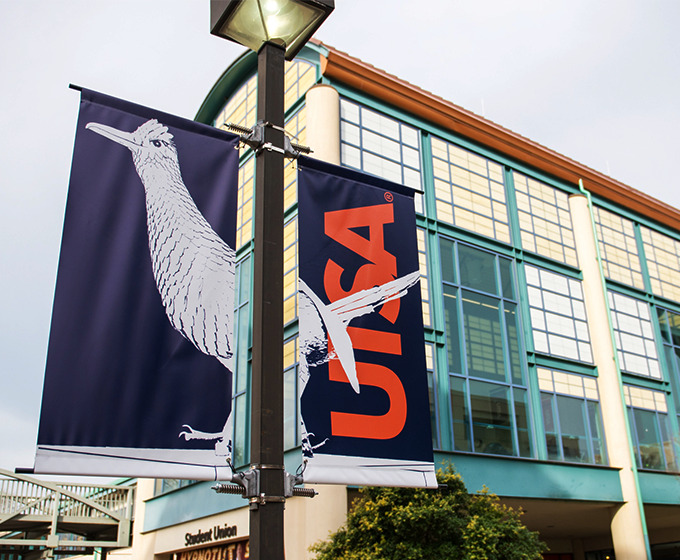
NOVEMBER 15, 2021 — UTSA Academic Affairs is pleased to announce its 2021-2022 Advancing Next-Gen Faculty Leadership Fellows. In its third year, the program is designed to provide intensive one-on-one training and development experience to promote diverse academic leadership at UTSA.
“In a short time, this program has become an important opportunity for faculty who are eager to advance in their careers and contribute in different ways to help UTSA advance in its mission to become a model for student success and a great public research institution,” said Heather Shipley, senior vice provost for academic affairs and dean of University College. “Each year we have been able to increase the number of fellowship opportunities across the university—starting with two placements, then three, and now five.”
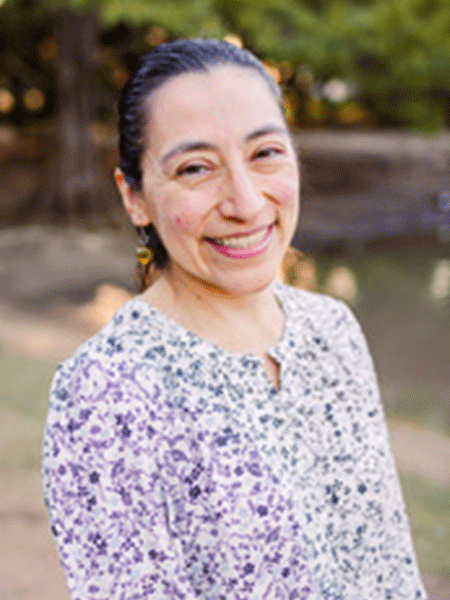
Sidury Christiansen is an associate professor of bicultural-bilingual studies in the College of Education and Human Development. Passionate about digital literacy, Christiansen is fulfilling her fellowship within Academic Innovation, where she is developing and championing innovative teaching, technology and virtual learning practices that will help further strengthen UTSA’s nationally-recognized teacher training programs. Her goal is to help the College of Education and Human Development become a model in integrating technology in innovative ways so that graduates of its professional preparation programs are technologically proficient and prepared to succeed in today’s classrooms.
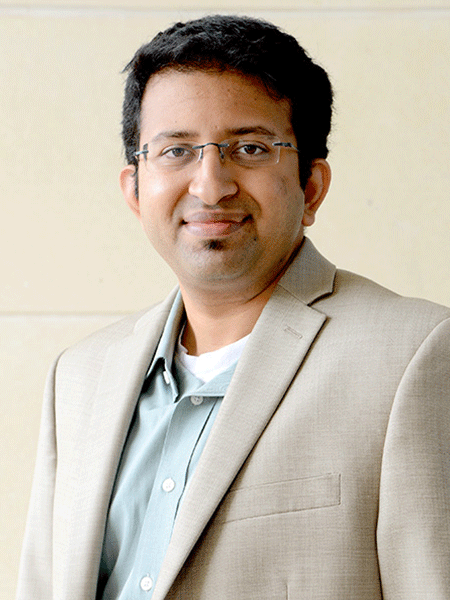
Teja Guda is an associate professor of biomedical engineering and chemical engineering and the Jacobson Distinguished Professor of Innovation and Entrepreneurship within the College of Engineering and Integrated Design. With the goal of strengthening his research leadership capabilities and developing strategies to improve UTSA’s research reputation and visibility on a global level, Guda is completing his fellowship in the Knowledge Enterprise.
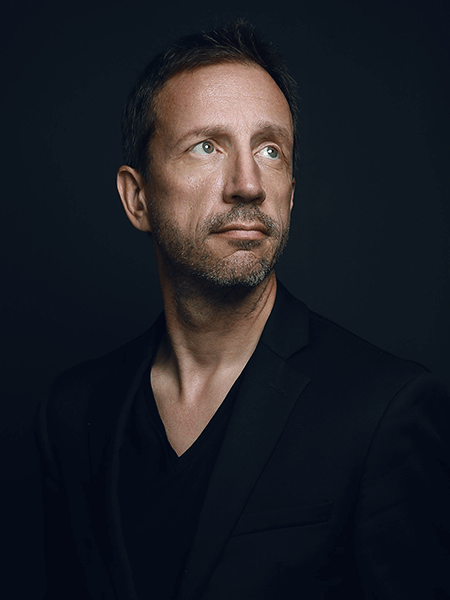
Antonio Petrov is an associate professor of architecture in the College of Engineering and Integrated Design and founder the Urban Future Lab, an award-winning interdisciplinary urban planning think/do-tank. As a fellow within UTSA’s Westside Community Partnerships initiative, Petrov hopes to take strategies employed by the lab to further strengthen the university’s cultural empathy and connection with the people living in some of San Antonio’s most economically underserved neighborhoods in and around the downtown area where the university is expanding its footprint. He intends to not only explore how place can be used as a restorative measure to manage growth and change while preserving local identity, but also give agency to the community to take an active role in managing growth while increasing density and preserving cultural integrity.
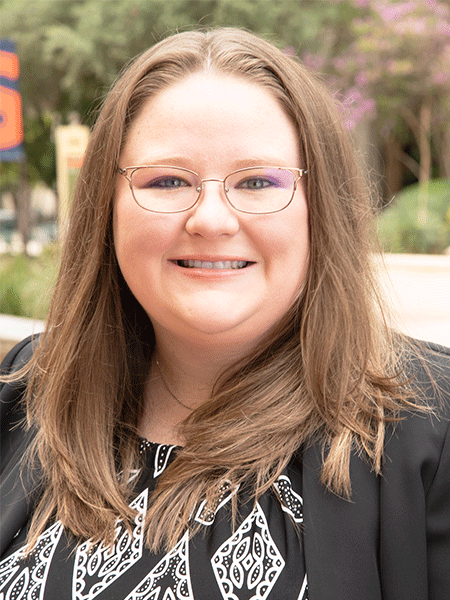
Rebecca Schroeder is an associate professor of instruction in the University College’s Academic Inquiry and Scholarship program. With a specialty in curriculum development that emphasizes experiential learning, Schroeder’s fellowship is in the Multidisciplinary Studies program, where she is supporting the development of new transdisciplinary degree programs that are responsive to the marketplace. In addition, she is working to increase diversity and promote inclusiveness within the existing Multidisciplinary Studies niche pathways of cyber security.
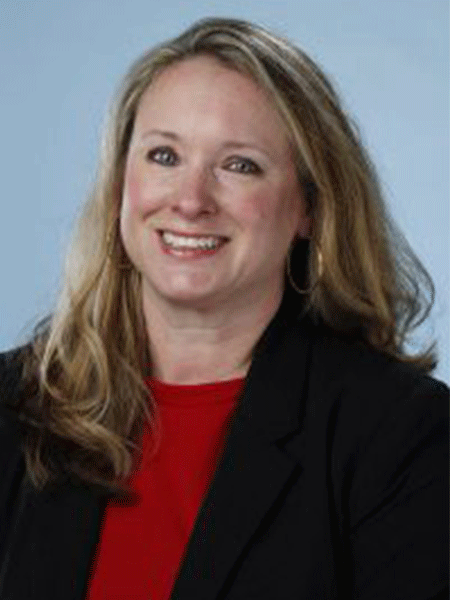
Heather Trepal is a professor of counseling in the College of Education and Human Development. Through her professional experience, she has become increasingly aware of the challenges graduate students face in their school-to-work transition. In her fellowship within Graduate and Postdoctoral Studies, Trepal is identifying and developing opportunities to enhance the teaching experience and preparation of UTSA’s graduate students so they are better prepared for a broader range of careers.
Launched in 2019, the objectives of the Advancing Next-Gen Faculty Leadership Fellow Program are to help up-and-coming faculty leaders learn about the academic organization and operations; develop skills and attributes of effective academic leaders; consider current and future challenges and opportunities in higher education; recognize and implement the values of diversity, inclusion, self-awareness and ethical leadership; and develop professional relationships. Fellows spend approximately 10 hours per week in residence in their assigned unit, attend regular meetings, and work with their mentor to complete a special project.
The program is open to all tenured associate or full professors and full-time fixed-term-track faculty who have been employed as faculty at UTSA for at least three years.
UTSA Today is produced by University Communications and Marketing, the official news source of The University of Texas at San Antonio. Send your feedback to news@utsa.edu. Keep up-to-date on UTSA news by visiting UTSA Today. Connect with UTSA online at Facebook, Twitter, Youtube and Instagram.
Move In To COLFA is strongly recommended for new students in COLFA. It gives you the chance to learn about the Student Success Center, campus resources and meet new friends!
Academic Classroom: Lecture Hall (MH 2.01.10,) McKinney Humanities BldgWe invite you to join us for Birds Up! Downtown, an exciting welcome back event designed to connect students with the different departments at the Downtown Campus. Students will have the opportunity to learn about some of the departments on campus, gain access to different resources, and collect some giveaways!
Bill Miller PlazaJoin us for an intimate evening of cocktails, conversation, and culinary inspiration with Pati Jinich, Emmy-nominated chef and James Beard Award-winning author. Enjoy light bites and signature drinks in the warm, modern setting of Mezquite as Pati connects with guests over her passion for Mexican cuisine and storytelling.
Mezquite Restaurant in Pullman Market, 221 Newell Ave., San Antonio 78215From inspired courses to thoughtful pairings and a rich sense of community, the Ven a Comer Signature Dinner is a night of shared meals, shared stories, and unforgettable flavor.
Stable Hall (Pear Brewery), 307 Pearl Pkwy, San Antonio 78215Come and celebrate this year's homecoming at the Downtown Campus with food, games, giveaways, music, and more. We look forward to seeing your Roadrunner Spirit!
Bill Miller PlazaThe University of Texas at San Antonio is dedicated to the advancement of knowledge through research and discovery, teaching and learning, community engagement and public service. As an institution of access and excellence, UTSA embraces multicultural traditions and serves as a center for intellectual and creative resources as well as a catalyst for socioeconomic development and the commercialization of intellectual property - for Texas, the nation and the world.
To be a premier public research university, providing access to educational excellence and preparing citizen leaders for the global environment.
We encourage an environment of dialogue and discovery, where integrity, excellence, respect, collaboration and innovation are fostered.